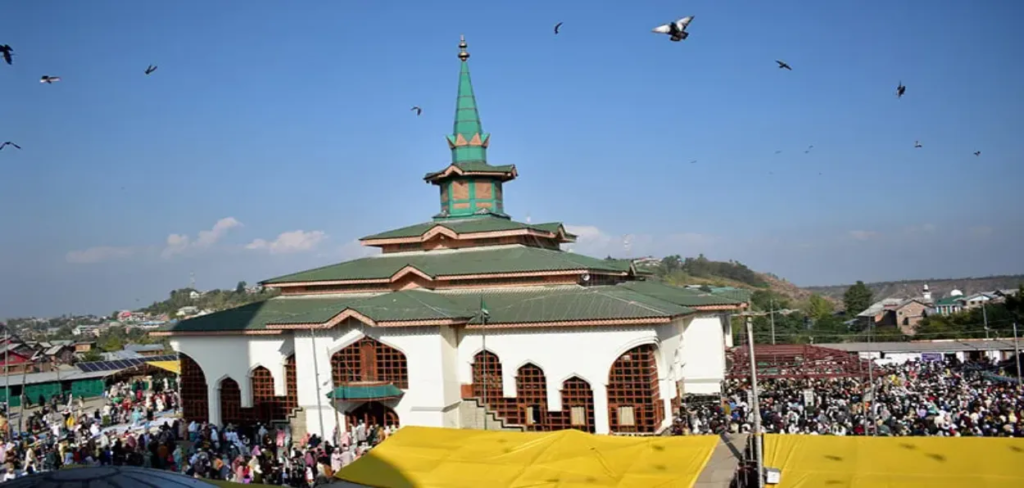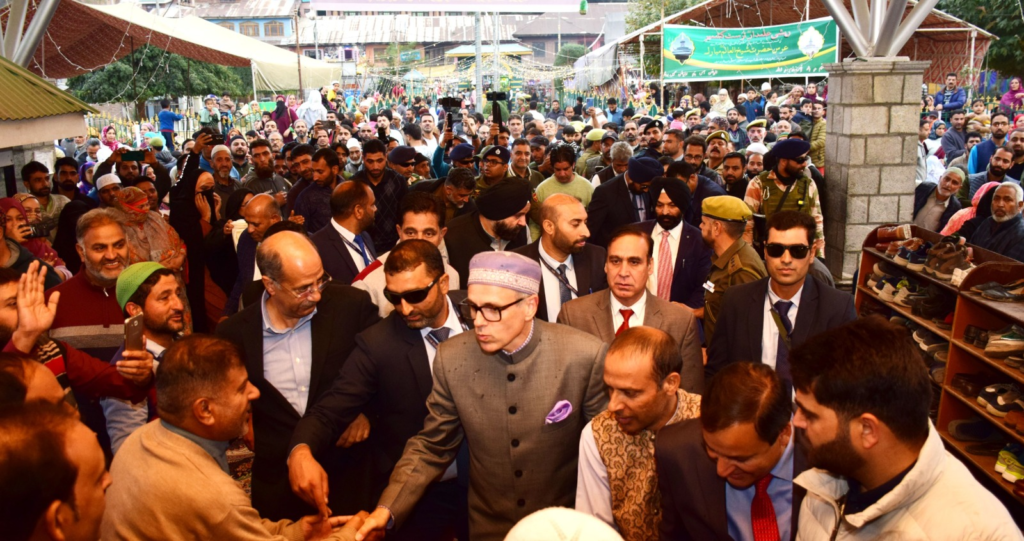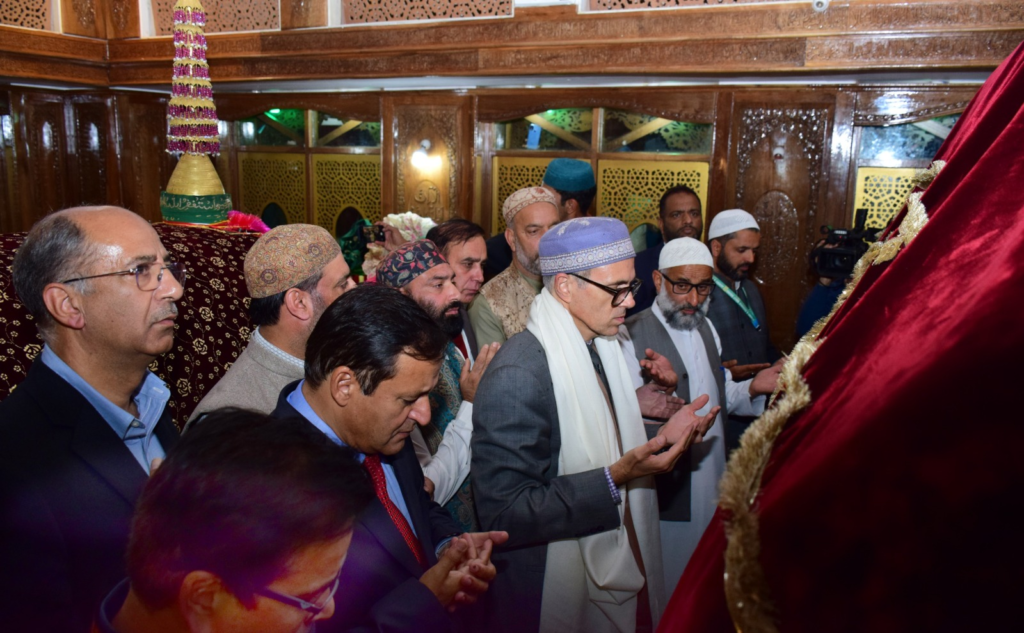JAMMU & KASHMIR :
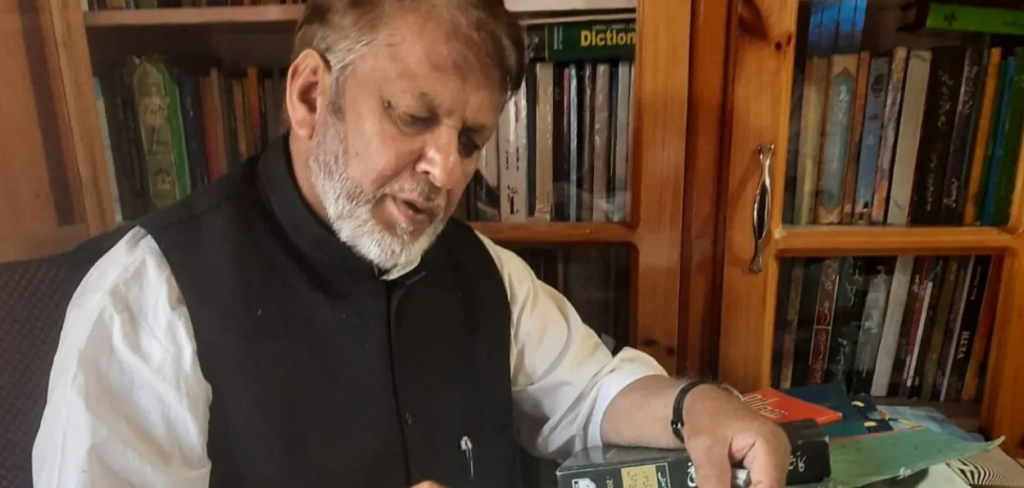
Prof Farooq Fayaz Bhat
Farooq Fayaz Bhat’s rise in life had a strong link with the place of his birth. The Sahitya Akademi award winner author and historian feels that being born in a locality that was adjacent to Habbakadal, a hub of theatrical activities in Kashmir back then, shaped his personality and mind.
Early in his life, he developed a keen interest in art and culture and gradually moved into the realms of literary criticism, particularly Kashmir’s folk cultural history.
More than five decades of his journey through theatre, Radio Kashmir, Srinagar (now AIR), and teaching, his zest for Kashmiri culture through history has earned him the Sahitya Akademi award for the Kashmiri language in 2022.
The author of many books in Kashmiri and English, Bhat was also conferred with the Jammu and Kashmir State Academy of Art, Culture and Languages award in 2009. He also taught history at the University of Kashmir where he retired as Professor of History a decade ago.
He was also the Director, UGC Academic Staff College.
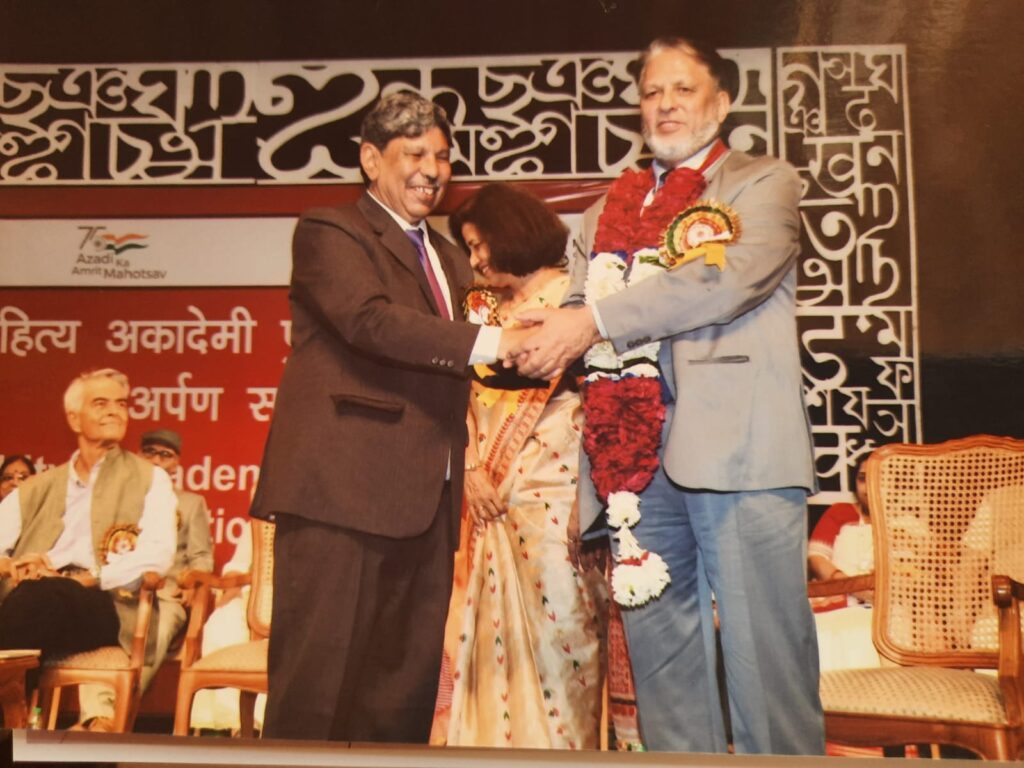
Farooq Fayaz Bhat receiving the Sahitya Akademy award
“Zael Dab, for which he received the Sahitya Akademi award in 2022, is a collection of critical essays on literary personalities of Kashmir. It was adjudged “the best book”.
“For the first time I applied a particular critical theory and it was under the wide frame of a post-modern critical theory, neo-historicism”, Farooq Fayaz said while talking to Awaz-The Voice at his residence at Kanipora on the Srinagar outskirts. “I applied this theory to examine Kashmir’s wide range of writers. It was highly appreciated in literary circles with (at least) 14 reviews published in regional and national media by eminent writers”, he said.
Farooq Fayaz disclosed that he was “working on the second edition of ‘Zael Dab’ in which more contributors would be critically examined”. He hopes to publish it next year.
One of his current projects in which he is working is the Kashmiri translation of Romila Thapar’s “Early India History”, under the aegis of National Translation Mission, Mysore. He said he has completed the work and the book is in the process of printing by the Mission of the Government of India.
Another project of “rewriting the history of Kashmiri literature”, is at the hands of the critic and author, which has been completed up to Habba Khatoon, 16th century Kashmiri woman poet.
The Jammu and Kashmir State Academy of Art, Culture, and Languages awarded Farooq Fayaz for his book “Kashmiri Folklore: A Study in Historical Perspective” (English) in 2009. The book was picked up among 100 entries for the coveted award. The awards were given away on the literary works in 14 regional languages of the erstwhile State of J&K by the then Chief Minister, Omar Abdullah at the Sher-e-Kashmir International Conference Centre (SKICC) in Srinagar.
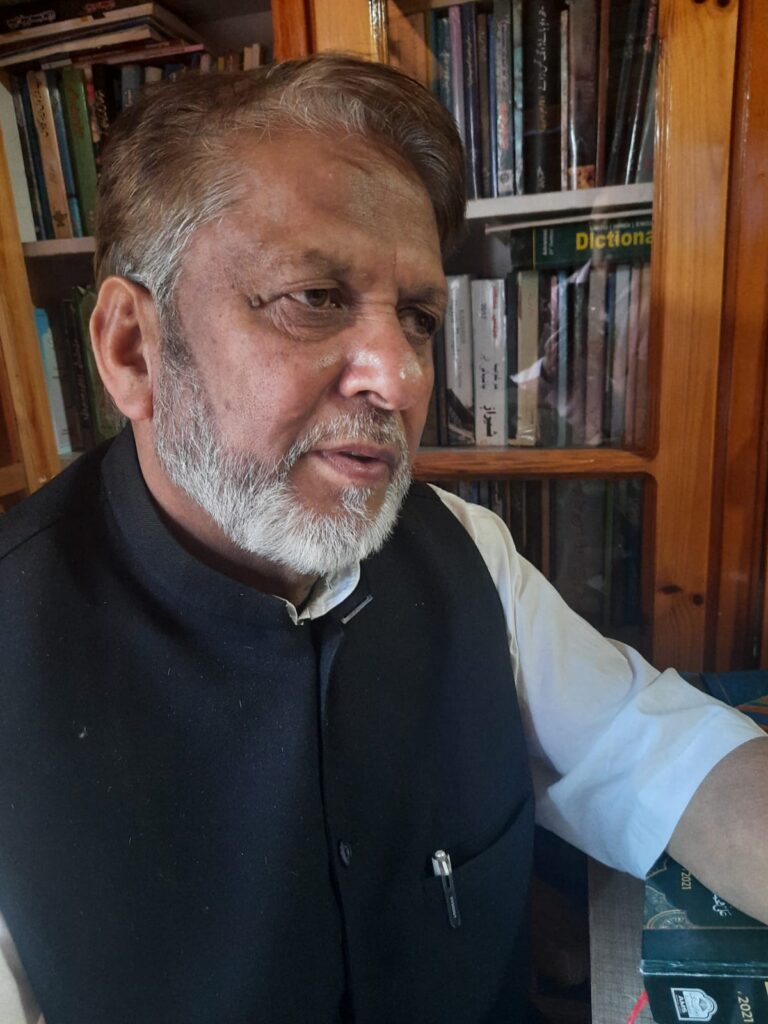
Prof Farooq Fayaz Bhat
This award-winning book was based on his Ph. D thesis under the guidance of renowned Prof Mohammad Ishaq Khan, with more additions to his work on the “Kashmir folklore as source information in an attempt to build a cultural history of Kashmir”, he said. Kashmiri folklore including “Baande paether” (street theater) and “Laddi Shah” have been the only oral evidence of folk culture in Kashmir, through which social and economic issues were being highlighted through street plays, mostly in the rural areas till the end of the last century. “Baande paether”, though being staged in some areas over the past two decades, has taken a back seat now.
Elaborating on his work, Farooq Fayaz said that the peasants, before 1947 were being humiliated and lived a hard life. “I studied and examined “Baande paether”, played by folk artists presenting their plight or torture, etc through their plays. It became a medium between the governments and the common man. I started decoding the coded language. Similarly, there is “Laddi Shah”, a story-telling musical genre, the art of traditional humorous folk singing by minstrels wandering (for alms during harvest season) from place to place. He also referred to the Wanwun, and Rauff, folk songs by Kashmiri women on marriage or other occasions, in his endeavor to build the cultural history of Kashmir.
Farooq Fayaz lamented that women were “marginalized” as there were illustrations of only 13 women who had been directly or indirectly associated with “Durbar”, adding there have been a large number of such women. “I highlighted the plight of Kashmiri women in feudal structure. How they suffered and how they have shown their miseries and plight….all these things were added to the thesis”, he said referring to the award-winning book.
His publications include (a) “Zaban Adab Te Tawareekh”(Language, Literature, and History), (b) Folklore and History of Kashmir, (c) Kashmir Folklore-A Study in Historical Perspective, (d) Zael Dab (Collection of Critical Essays), (e) Fazil Kashmiri (Monograph-Kashmiri) and (f) Ameer Shah Kreeri (Monograph-Kashmiri).
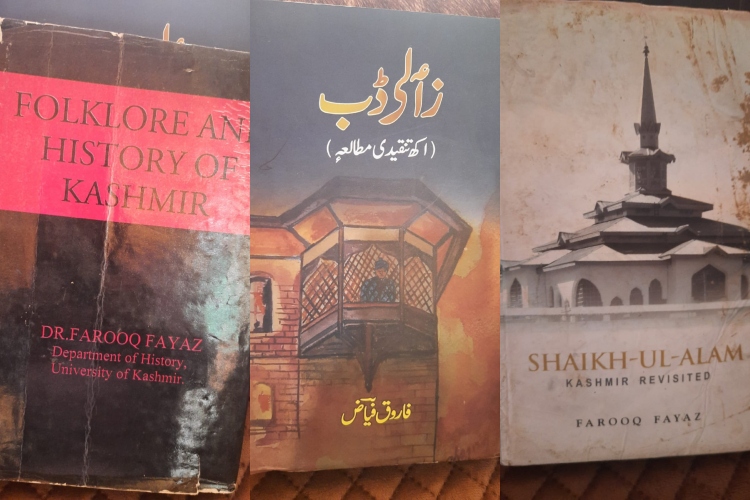
Some books authored by Prof Farooq Ahmed Bhat
Born on April 16, 1954, in Sathu Barbarshah, Farooq Ahmad who is known by his pen name Farooq Fayaz (Bhat), he got schooling at the local Government schools and the nearby SP Higher Secondary School and graduated from S P College in 1973. From early childhood, he was exposed to the “hub of theatrical activities” from the nearby Kralkhud to the Habbakadal area.
“The area was dominated by learned Kashmiri Pandits, great luminaries, having knowledge of Persian, Sanskrit (Urdu as well) theatrics and cultural activities. In the S P college, “there were teachers of eminence whose teachings influenced my passion for writing”, Farooq Fayaz said and referred to many teachers like Prof Mohiuddin Hajini, who was regarded as an authority on Arabic, Urdu, and Kashmir languages, Prof L N Dhar, History, Prof Manzoor Fazili (Political Science) and Prof Ghulam Nabi Firaq.
He was also a regular contributor to the prestigious college magazine, Pratap. With encouragement from the learned men in the vicinity and teachers in the college, Fayaz Farooq developed an “immense literary taste” and got associated with theatrical activities in and outside J&K. In the 1970s and ’80s, Radio Kashmir, Srinagar (AIR) being the “biggest attraction for writers and talented” persons, provided a platform for literary and cultural activities.
“I got motivated to work on the literary history of Kashmir and developed an interest in literature”, he said. Initially, he became a member of Rangmanch Dramatic Club, performing in J&K and also outside in Delhi, Mumbai, Kolkatta, and other places, where the audiences comprised mostly people from Bollywood.
However, his keen interest in History and language led him to pursue a master’s degree in the subject from the University of Kashmir, followed by a Diploma course in Kashmiri language at the newly set up Department (Later, PG Deptt) of Kashmiri at The University of Kashmir. Having served as a school teacher for about five years, Farooq Fayaz, also worked as a Translation Executive at Radio Kashmir, Srinagar from 1989 to 1992. He joined the Department of History as a Lecturer in 1992 and superannuated as a Professor at the University of Kashmir in 2014.
source: http://www.awazthevoice.in / Awaz, The Voice / Home> Story / by Ehsan Fazili, Srinagar / May 29th, 2024
